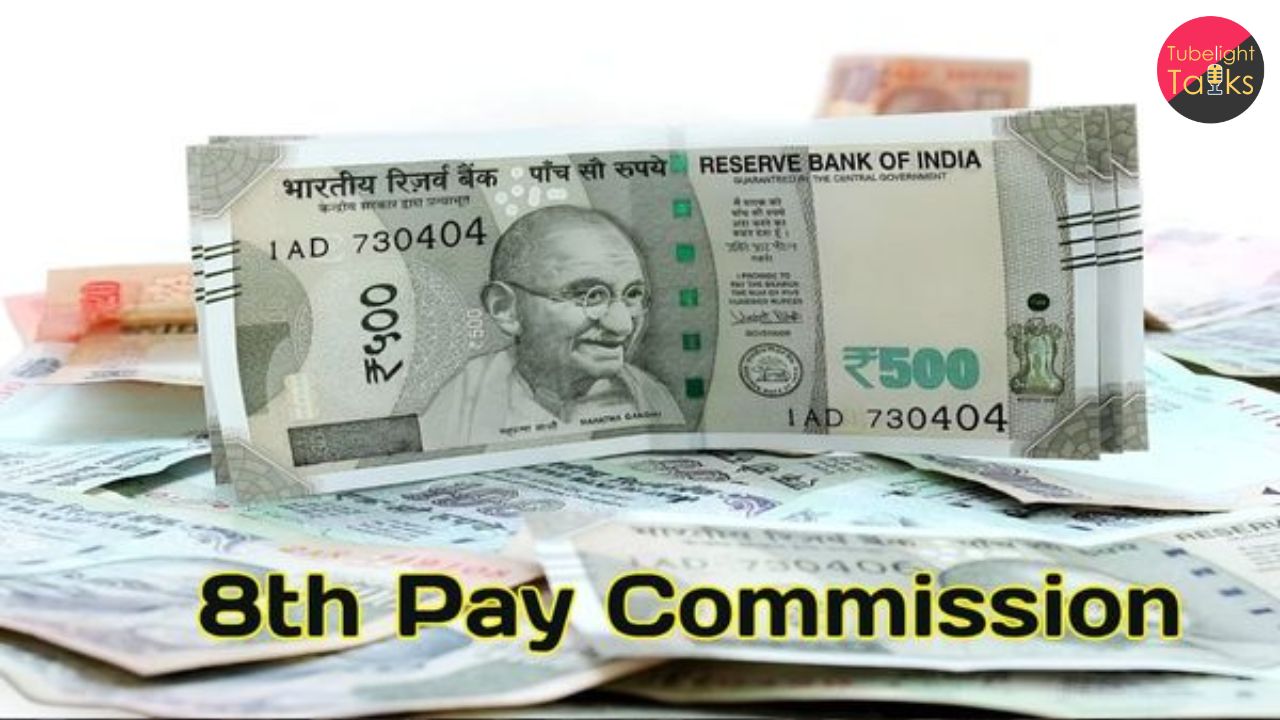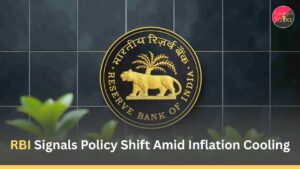8th Pay Commission: Major Salary Hike for Central Govt Employees
The Union Cabinet has given the green light to the 8th Pay Commission, which is expected to bring substantial salary hikes and benefits for central government employees. Scheduled for implementation on January 1, 2026, the commission is likely to increase the minimum basic salary to more than ₹40,000 per month. In addition to basic pay, perks, allowances, and performance-based incentives will also see significant enhancements.
8th Pay Commission: Key Highlights
- Central Government Salaries Set for a Significant Boost
- Timely Planning for 2026 Implementation
- Economic Impact of the 8th Pay Commission
- Anticipating a Significant Fiscal Impact on the Exchequer
- Fitment Factor Evolution: 8th Pay Commission Poised for Generous Pay Hikes
- 8th Pay Commission: Empowering Workforce and Driving Economic Growth
- It is a boost for Employees, A Challenge for Fiscal Balance
- The Path to Eternal Happiness and True Liberation
Salary Hike Under 8th Pay Commission: Fitment Factor Speculation
The 8th Pay Commission is projected to introduce a fitment factor between 2.6 and 2.85, leading to an estimated salary increase of 25-30%. Neeti Sharma, CEO of TeamLease Digital, predicts that the minimum basic salary for central government employees will exceed ₹40,000, reflecting adjustments to current economic conditions.
Under the current 7th Pay Commission, the minimum basic salary is ₹18,000 per month, up from ₹7,000 during the 6th Pay Commission. When combined with additional allowances like Dearness Allowance (DA), House Rent Allowance (HRA), and Travel Allowance (TA), the minimum salary currently reaches ₹36,020 per month.
8th Pay Commission: Implementation Timeline and Process
The 8th Pay Commission’s recommendations are expected to be effective from January 1, 2026. Union Minister Ashwini Vaishnaw explained the government’s proactive approach in setting up the commission well ahead of the 7th Pay Commission’s conclusion.
Also Read: Credit Card vs Debit Card Difference: Choose Your Path to Reliable Payment
The 7th Pay Commission, implemented in January 2016, will complete its 10-year term by 2026. Establishing the new pay commission in 2025 allows adequate time for deliberations and implementation. The government will soon appoint a chairman and two members to oversee the process. Historically, pay commissions are constituted every decade, ensuring timely revisions.
8th Pay Commission: Bridging Pay Gaps and Boosting Economic Growth
Salary revisions under the 8th Pay Commission are anticipated to address inflation and rising living costs effectively. According to Neeti Sharma, these updates will help bridge the gap between public and private sector compensation, ensuring government jobs remain financially attractive.
Also Read: Cabinet Approves Formation of 8th Pay Commission for Central Government Employees
Higher disposable incomes due to increased salaries and pensions are expected to boost consumer spending, providing a positive ripple effect on the overall economy. These revisions also demonstrate the government’s commitment to maintaining an equitable compensation structure for its workforce.
8th Pay Commission: Fiscal Implications of Salary Hikes
The financial impact of the 8th Pay Commission on the exchequer will be clearer once the commission submits its final report. However, experts predict a substantial fiscal burden similar to previous pay commissions.
Aditi Nayar, Chief Economist at ICRA Ltd., noted that while fiscal metrics might not be immediately impacted in FY 2026, the government will need to account for the costs in its medium-term fiscal strategy and the Finance Commission’s recommendations. For context, the 7th Pay Commission led to an expenditure increase of ₹1 lakh crore for FY 2016-17. A comparable or higher financial outlay is expected this time.
Role of Fitment Factor in Salary Revisions
The fitment factor is a key determinant in calculating salary increases. The 7th Pay Commission introduced a fitment factor of 2.57, resulting in an average salary hike of 23.55%. This also brought pensions in line with the ‘One Rank, One Pension’ scheme.
The 6th Pay Commission, by comparison, applied a factor of 1.86. For the 8th Pay Commission, the speculated fitment factor range of 2.6 to 2.85 is expected to deliver significant increases in pay and pensions.
Why the 8th Pay Commission is Crucial
The 8th Pay Commission aims to tackle contemporary economic challenges like inflation and high living costs while ensuring government salaries remain competitive with the private sector. In addition to boosting morale, the revised pay structure is designed to provide financial empowerment to government employees.
According to Neeti Sharma, such revisions are essential to maintain a motivated workforce and recognize the contributions of government employees to national progress. Increased disposable incomes resulting from higher salaries will also contribute to economic growth.
8th Pay Commission: A Step Towards Fair Pay and Economic Stability
The 8th Pay Commission’s approval is a significant development for central government employees and pensioners. With a likely increase in the minimum basic salary to over ₹40,000, coupled with proportional hikes in allowances and pensions, the new pay scale promises to enhance the financial well-being of millions of workers and retirees. However, the government must plan carefully to manage the fiscal implications of these changes and ensure long-term economic stability.
This development underscores the government’s commitment to a fair and competitive pay structure, addressing the evolving needs of its workforce while positively impacting the broader eSalvation
From Pay Raise to Spiritual Rise: The True Path to Salvation
An increase in salary often brings joy and a sense of financial independence, offering temporary relief and comfort. However, this worldly happiness is fleeting and cannot provide lasting peace. So, how can we achieve true independence and eternal happiness? Today, a remarkable spiritual leader, Sant Rampal Ji Maharaj, is guiding humanity on the path to supreme peace and everlasting joy through his profound spiritual knowledge. Sant Rampal Ji Maharaj not only empowers his followers to lead a harmonious and prosperous worldly life through scripture-based devotion but also reveals the authentic path to complete salvation.
To delve deeper into his teachings, explore his revolutionary spiritual wisdom, and learn about the incredible social welfare initiatives he has undertaken, visit “Sant Rampal Ji Maharaj” YouTube channel or the official website www.jagatgururampalji.org. Discover the way to true happiness and eternal liberation today!











Discussion (0)